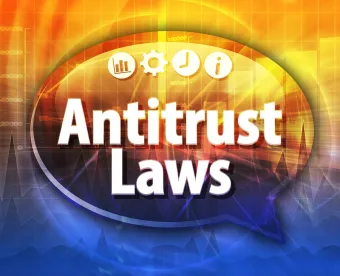Netherlands
A. Dutch investigation into home décor cartel.
On Sept. 18, 2020, the Dutch Authority for Consumers & Markets (ACM) stated that it was investigating a potential cartel in the home décor sector. The ACM suspected these companies of price-fixing arrangements to the consumers and pricing agreements. The ACM has carried out dawn raids on the premises of suspected companies, the first dawn raids in the Netherlands since the COVID-19 outbreak. The ACM is currently investigating whether any competition infringement has occurred.
B. Dutch competition authority fines price information exchange in tabaco industry.
On Sept. 28, 2020, the ACM imposed fines totaling more than EUR 82 million on four major cigarette manufacturers who, between July 2008 and July 2011, distorted competition by exchanging information, through wholesalers among other channels, about future prices of cigarette packs. Martijn Snoep, Chairman of the Board of ACM, explained: “It was common practice for cigarette manufacturers to receive information from wholesalers about the retail prices of their competitors’ cigarette packs before those prices came into effect. With that information, the manufacturers were able to adjust their prices to their competitors’ prices in advance. That distorts competition. The manufacturers knew that exchanging this type of information was at odds with competition rules. However, that did not lead to changes in their behavior.”
Director’s liability following a cartel fine by the European Commission.
The court of Northern Netherlands ruled on Sept. 23, 2020, on director liability following a cartel fine imposed by the European Commission. One of the questions was whether a director was liable for the fine for cartel agreements and infringing competition law that was imposed on the company of which it was director. The bankruptcy trustees of some of the involved bankrupt companies in the cartel tried to claim damages from the director. These claimed damages amounted to the cartel fine of EUR 27 million. The court did not find the director liable based on a tort. However, there was partial director liability pursuant to article 2:9 of the Dutch Civil Code; partial, because it could not be proven that the director was responsible for the full damages. Alternatively, the bankruptcy trustees claimed for 48.05% of the cartel fine, calculated on the period for which the director was appointed. The court concluded that the director was liable for an amount of EUR 13 million, which was 48.05% of the actual imposed cartel fine instead of the original cartel fine as requested by the bankruptcy trustees.
United Kingdom
A. Litigation
On Sept. 1, 2020, the Competition Appeal Tribunal (CAT) published a summary of the appeal by Roland (UK) Limited and Roland Corporation (Roland) against a fine of £4,003,321 imposed by the Competition and Markets Authority (CMA) on Roland for engaging in online resale price maintenance (RPM) relating to electronic drumkits and associated products. RPM exists where a supplier directs the prices charged by its distributors/retailers when they resell the supplier’s products and is treated as a serious infringement of competition law.
This was a settlement case. As such, it does not involve an appeal by Roland against the CMA’s finding of infringement; the appeal relates solely to the amount of the fine imposed by the CMA. Roland contends that the 19% starting point used for the fine calculation was excessive because, in Roland’s view, the CMA overstated the seriousness of RPM and failed to take account of the very narrow scope of the RPM that it found in its decision. In addition, Roland contends that its 20% leniency discount was too low.
B. COVID-19:
Changes to Competition Act 1998 exclusion orders.The Secretary of State previously exercised its authority to permit anticompetitive agreements in the COVID-19 crisis and implemented a number of exclusion orders applicable to specific sectors of the economy:
• Health care: The Competition Act 1998 (Health Services for Patients in England) (Coronavirus) (Public Policy Exclusion) Order 2020 exempts certain information-sharing, coordination, and joint purchasing agreements between National Health Service bodies with and amongst independent providers in England. A corresponding order has been issued for Wales.
• Ferry services: The Competition Act 1998 (Solent Maritime Crossings) (Coronavirus) (Public Policy Exclusion) Order 2020 exempts agreements on coordination of timetables and routes and the sharing of labour services between maritime operators providing passenger and freight crossings to and from the Isle of Wight.
• Groceries: The Competition Act 1998 (Groceries) (Coronavirus) (Public Policy Exclusion) Order 2020 exempts certain agreements relating, amongst other things, to the coordination of “anti-hording” measures, labour- and facility-sharing, coordination of product ranges, exchanges of stock positions and shortages, coordination in relation to the provision of groceries to vulnerable groups and coordination of temporary store closures and opening hours.
The Secretary of State has now decided to revoke the above groceries order as of Oct. 8, 2020, because the exceptional and compelling conditions for which it was required have abated. In addition, a similar order applicable to the dairy sector (the Competition Act 1998 (Dairy Produce) (Coronavirus) (Public Policy Exclusion) Order 2020) expired on Sept. 25, 2020.
The remaining orders have been amended to the effect that each will now end when revoked by statutory instrument (rather than when the Secretary of State issues a notice).
C. Competition and Markets Authority (CMA)
1. Mutual assistance and co-operation among UK, U.S., Canadian, Australian and New Zealand competition authorities.
On Sept. 2, 2020, the CMA announced that it has entered into the Multilateral Mutual Assistance and Co-operation Framework for Competition Authorities (MMAC) with the Australian Competition and Consumer Commission, the New Zealand Commerce Commission, Competition Bureau Canada, the U.S. Department of Justice, and the U.S. Federal Trade Commission. The MMAC includes a memorandum of understanding focused on improving existing cooperation and coordination on investigations. It also includes a model agreement to support the development of individual arrangements among the participating agencies, which may include the exchange of case information and assistance in individual competition investigations, to the extent permitted by respective national laws.
2. Changes to CMA leniency guidance for resale price maintenance (RPM) cases.
On Sept. 24, 2020, the CMA adopted an addendum to its Guidance on leniency and no-action applications in cartel cases. The addendum explains how the CMA will approach its discretion when granting leniency discounts in so-called “Type B” RPM cases, where a supplier directs the prices charged by its distributors/retailers when they resell the supplier’s products. In the UK, RPM is treated as a serious infringement of competition law, by both supplier and distributors/retailers.
Type B leniency arises where the CMA is already conducting an investigation and the leniency applicant is the first to report and provide evidence of a serious infringement. The new addendum states that, while the CMA may grant Type B applicants in cartel cases a penalty discount of up to 100%, it would not generally expect to grant discounts of more than 50% to Type B applicants in RPM cases.
3. Further director disqualifications and CMA statement of intent.
On Sept. 2, 2020, the CMA announced that it has secured a two-year competition disqualification undertaking from Mr Robin Davies, a director of Alissa Healthcare Research Limited (Alissa Healthcare), on the grounds of his involvement in Alissa Healthcare’s cartel conduct. The CMA adopted an infringement decision finding that Alissa Healthcare had breached the UK and EU prohibitions on anticompetitive agreements by exchanging commercially sensitive information with competitors in relation to the drug nortriptyline. In a contested application connected to the same infringement decision, the CMA is also seeking disqualification of Mr. Pritesh Sonpal, a director of Lexon (UK) Limited.
In this context, it is noteworthy that the CMA has recently issued guidance for company managers, directors, and their advisors stating that the CMA has now disqualified 20 directors for anticompetitive behavior (having not used its director disqualification powers prior to 2016). The guidance also notes that the CMA will now consider director disqualifications in all cases of competition law infringement.
4. Price gouging: abuse of dominance.
As previously reported, in June 2020, the CMA launched four investigations under Chapter II of the Competition Act 1998, alleging that four pharmacies and convenience stores were abusing a dominant market position by charging excessive and unfair prices for hand sanitizer during the COVID-19 crisis. Three of these investigations were closed on July 13, 2020.
On Sept. 2, 2020, the CMA announced that it has closed the last of its investigations.
5. Merger Review Roundup.
The CMA1 continues to have a strong pipeline of both anticipated and completed transactions currently in phase 1 and phase 2 review. Notable developments in September 2020 include:
• Phase 1: The CMA is consulting on undertakings in lieu of reference to a Phase 2 investigation of the anticipated acquisition by Stryker Corporation of Wright Medical Group N.V. The Phase 1 investigation concluded that the merger could result in a substantial lessening of competition in the supply of total ankle replacement prostheses products in the UK. In order to avoid an in-depth phase 2 review, Stryker has offered to divest its Scandinavian Total Ankle Replacement (STAR) product and related assets.
• Phase 1: The CMA considers that undertakings offered in lieu of reference to a Phase 2 investigation of the completed acquisition by Breedon Group plc of certain assets of Cemex Investments Limited to be acceptable in principle. The Phase 1 investigation found that the merger could result in a substantial lessening of competition in the supply of ready-mixed concrete, non-specialist aggregates, or asphalt in 15 local markets across the UK. In addition, the CMA is concerned that the deal may give rise to coordinated effects in the East of Scotland by enabling suppliers in that region to profitably align their market conduct. In order to avoid a phase 2 reference, Breedon has offered to divest, to an upfront buyer, assets in each of the relevant local areas as well as Breedon’s cement import terminal in Dundee.
• Phase 1: The Phase 1 investigation into the completed acquisition by Ardonagh Group Limited of Bennetts Motorcycling Services Limited concluded that the deal gives rise to a realistic prospect of a substantial lessening of competition in the distribution of motorcycle insurance to private customers in the UK. On Sept. 30, 2020, the CMA announced that Ardonagh Group has offered to divest the target business, thereby effectively unwinding the merger (except that the target does not revert to its previous owners). The CMA will consult on Ardonagh Group’s proposal in accordance with its standard procedures but, in principle, considers that the proposal is capable of addressing its concerns.
• Phase 1: The CMA is consulting on undertakings in lieu of reference to a Phase 2 investigation of the completed acquisition by ION Investment Group Limited of Broadway Technology Holdings LLC. The Phase 1 investigation concluded that the merger may result in a substantial lessening of competition in relation to the supply of sell-side front-office systems for electronic trading of fixed income securities. In order to avoid a Phase 2 reference, ION has offered to divest the Broadway fixed-income business to a specified upfront buyer.
• Phase 2: The CMA has published the final report on the completed acquisition by Hunter Douglas N.V. of 247 Home Furnishings Ltd. The CMA had concluded that the transaction has resulted, or may be expected to result, in a substantial lessening of competition in the online retail supply of made-to-measure window blinds in the UK and has required Hunter Douglas to divest its majority stake in 247.
• Phase 2: The CMA announced the cancellation of its Phase 2 investigation into the anticipated acquisition of Outbrain, Inc. by Taboola.com Ltd, because Taboola confirmed the abandonment of the deal. Both parties are active in the supply of content recommendation platform services to publishers in the UK.
• Merger appeals: The Competition Appeal Tribunal (CAT) published details of an appeal brought by JD Sports Fashion plc and its parent company, Pentland Group Limited, against a CMA decision to fine them £300,000 for failure to comply with an initial enforcement order issued in the context of the completed acquisition by JD Sports of Footasylum plc (which was prohibited by the CMA, a decision also being appealed at the CAT).
Poland
A. UOKiK president issues commitment decision ordering Play to reimburse pre-paid amounts.
Following a recent decision by the president of the UOKiK, the telecommunication service provider Play is obliged to return consumer funds remaining when pre-paid accounts expire. The mechanism for returning the money remaining on the pre-paid account is to be implemented by Play within one month from the entry into force of the commitment decision against the company. This is not the first decision regarding the retention of unused money by telecoms. Previously, other companies experienced similar proceedings – Polkomtel was hit with a hefty fine for infringing collective consumer interests to the tune of over PLN 20 million, T-Mobile was obliged to change its commercial practices, and with respect to Orange Polska, the proceedings are still underway.
B. Retrospective discounts under investigation.
The UOKiK president initiated explanatory proceedings to investigate whether retail chains in Poland use unfair practices which may constitute unfair leveraging of contractual advantage in relation to their suppliers. The UOKiK’s main concerns relate to the fact that when entering into a contract, the supplier is not able to determine the value of the discount they must grant to the retail chain, or the basis for the criteria. Such activities may be deemed unfair leveraging of contractual advantage. The first charges in that respect were already raised against Jeronimo Martins Polska, the owner of Biedronka chain of stores.
As part of the explanatory proceedings, the UOKiK president sent questionnaires to certain suppliers from the food sector (including meat, dairy, vegetables) regarding discounts applied by retail chains. Explanatory proceedings are being conducted in the case, but not against any entity yet.
Italy
A. Italian competition authority initiates a phase II in the merger control proceeding concerning multiutility operators.
On Sept. 8, 2020, the Italian Competition Authority (the AGCM or ICA) initiated a so-called Phase II in the merger control procedure concerning the acquisition by A2A – a multiutility operator that generates, distributes, and markets renewable energy, electricity, gas, integrated water supply, and waste management services A2A – of Ambiente Energia Brianza, a competitor active in the geographical region of Brianza (Northern Italy). The ICA found that the transaction could potentially give rise to a dominant position in several markets located in the area around Milan, due to the strong presence of A2A, which is jointly controlled by the Municipalities of Milan and Brescia. In Italy, the phase II of a merger control procedure usually lasts 45 calendar days, and the AGCM may impose remedies to the parties before clearing the transaction.
B. Italian competition authority fines against Italian postal operator for unfair competition.
By its decision of Sept. 8, 2020, the ICA fined Poste Italiane for having conducted an unfair commercial practice in violation of the Italian Consumer Code, consisting in the misleading promotion of certain of its services for the delivery and collection of registered mail. In detail, the AGCM found that Poste Italiane: (i) frequently failed to deliver registered mail in a way consistent with the timing and efficiency characteristics of the service advertised by Poste Italiane and (ii) caused unacceptable burdens on consumers as well as several delays in the service of judicial documents and, consequently, a serious damage to the justice system. The ICA imposed on Poste Italiane the maximum fine established by law. However, the ICA emphasized that the sanction would probably have been much higher if Directive 2019/2161 A2A – which sets as maximum penalty in similar cases a fine up to 4% of annual turnover A2A – had already been implemented in Italy.
European Union
A. European Court of Justice (ECJ)
1. The ECJ upholds fine on Italian cable maker Prysmian.
Prysmian SpA received a fine by the European Commission in 2014 of approx. EUR 104 million for orchestrating a global high-voltage power cable cartel between 1999 and 2009. The ECJ decided on Sept. 24, 2020, that the fine should be upheld and that the European Commission did not act out-of-line when copying the hard drives of the company involved without first ascertaining whether the data on the hard drives were relevant for the investigation. This was justified, according to the ECJ, because all irrelevant data was deleted.
2. A more open interpretation of the criteria of direct concern.
The European General Court determined on Sept. 23, 2020, that Spain must recover the state aid which it provided under a tax lease scheme to shipping companies. The scheme allowed the shipping companies to benefit up to 30% on the price of vessels built by Spanish shipyards, and became a discussion topic after some companies complained they did not receive shipbuilding contracts due to the tax lease scheme. The European Commission concluded that the scheme gave a selective advantage to some companies which were in breach of the state aid rules. The General Court concurred with the European Commission
3. The ECJ declares invalid a Commission’s decision on French measures qualified as State aid.
On Sept. 17, 2020 the ECJ declared invalid the EU Commission’s July 14, 2004, decision, by which the latter found that certain French measures granting all fishery undertakings a 50% reduction in social security contributions was State aid. The judgment of the ECJ was adopted in the framework of a preliminary reference from the French Conseil d’Etat, in a proceeding concerning the recovery of the aid from Compagnie des pêches de Saint-Malo. In its judgment, the ECJ pointed out that the examination of the validity of the Commission’s decision could not be carried out if Compagnie des pêches de Saint-Malo would have had standing to seek annulment of the Commission’s decisions with a direct action under Article 263 TFEU, which can be exercised within two months from the adoption of the decision. In fact, the landmark ruling of the ECJ in TWD would prevent an undertaking to “abuse” of the preliminary reference procedures where it would have been possible for it to act directly before the ECJ. However, in this case the ECJ accepted the referral since it was only after 2011 that Compagnie des pêches de Saint-Malo was informed that it was concerned by the recovery of the aid. Having clarified this procedural aspect, the ECJ declared invalid the Commission’s decision given that the French measures provided no advantage to the fisheries undertakings, which merely acted as an intermediary for the employees.
4. The ECJ rules on State aid to Hinkley Point nuclear power station.
By a judgment of Sept. 22, the ECJ confirmed the validity of the Commission’s decision which authorized the aid granted by the UK to the Hinkley Point C nuclear power station. Such decision had already been appealed by Austria before the General Court, which rejected such action. The authorized aid consisted of three measures granted in favor of the nuclear plant future operator, NNB Generation, and included measures to ensure price stability during the operational phase of the plant as well as a credit guarantee on bonds to be issued by the beneficiary. The ECJ rejected the appeal brought by Austria on the grounds that: (i) the precautionary principle and the need to protect the environment do not prevent Member States from granting aids in favor of a nuclear plant operator and (ii) the assessment of the proportionality of the aid does not require the Commission to take into account the negative effects of the measure on environmental protection.
5. The ECJ and national competition authorities (Anesco).
In a Sept. 16, 2020, judgment known as an Anesco, the ECJ ruled that the preliminary request of the Spanish National Commission on Markets and Competition (CNMC) was inadmissible because the CNMC was not a ‘court or tribunal’ for the purpose of Article 267 TFEU. In 1992, the ECJ accepted a reference from a Spanish competition authority; however, at that time the institutional framework in Spain was different, with a competition court distinct from the competition investigatory body. Currently, Spain follows a model where the investigative and decision-making activities are functionally separate but handled by one (administrative) institution. The ECJ concluded that the competition proceedings by the CNMC are of an administrative nature, so no dialogue between the CNMC and the European Court of Justice was possible.
B. EU Commission
1. European Commission publishes findings on the evaluation of the Vertical Block Exemption Regulation (VBER).
The European Commission launched the review of the VBER, which will expire on May 31, 2022. As a result it published a Staff Working Document on Sept. 8, 2020, summarizing the findings of the evaluation of the VBER, together with the Vertical Guidelines. The aim of the evaluation was to assess the functioning of the VBER, together with the Vertical Guidelines, in order to decide whether it should lapse, be renewed, or be revised. Based on the evaluation, the European Commission will launch an impact assessment to evaluate the policy options for a revision of the rules. Based on this evaluation, revised VER and Vertical Guidelines can be expected.
2. Commission opens in-depth investigation into a Belgian capacity mechanism.
Belgium notified the Commission of its intention to implement a capacity mechanism aimed at ensuring security of electricity supply within the country, should resource adequacy issues arise in the future. The mechanism designed by Belgium provides for a support in the form of a capacity payment in favor of energy providers that will offer their availability to supply electricity to the transmission system operator (TSO) during stress events. The beneficiaries will be selected by means of a competitive bidding procedure. Based on its preliminary findings, the Commission raised concerns that the Belgian capacity mechanism may not be compliant with the EU State Aid rules, notably with the Guidelines on State aid for environmental protection and energy, and accordingly decided to open an in-depth investigation. The investigation will focus on the following issues: (i) Belgium has not sufficiently proved possible future issues of electricity adequacy; (ii) the Commission will assess whether the measure may discriminate against certain technologies, such as renewables; (iii) the Commission will investigate whether the resources’ allocation provided for by the mechanism could have a negative impact on competition and trade between Member States.
1 Contrary to most other jurisdictions, the UK operates a voluntary merger-control regime, meaning that acquirers are not obliged to notify CMA of transactions to which the regime applies and that the parties generally do not need to await clearance before closing a transaction. That said, the CMA is empowered to “call in,” for mandatory review, any non-notified transaction which it suspects may be subject to the regime. If it satisfies itself that this is the case, it will issue an order prohibiting (further) integration for the duration of its review. Indeed, many of the CMA’s prohibition decisions in recent times concern completed mergers that have not been notified.







 />i
/>i

